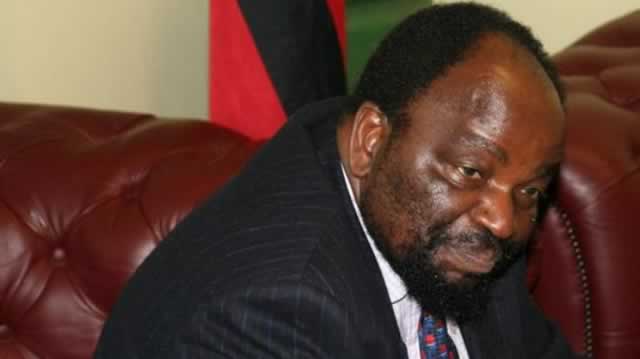No diplomatic passports for MPs, says minister

Zvamaida Murwira Senior Reporter
Government will not issue diplomatic passports to Members of Parliament because they are not entitled to that privilege, a Cabinet minister has said. Foreign Affairs Minister Simbarashe Mumbengegwi said this while responding to enquiries from legislators as he gave oral evidence on the country’s foreign policy before the Parliamentary Portfolio Committee on Foreign Affairs chaired by Makonde MP Cde Kindness Paradza (Zanu-PF).
Warren Park MP Mr Elias Mudzuri (MDC-T) had asked why MPs were not issued with diplomatic passports to facilitate their work, adding that in some countries like South Africa, legislators enjoyed that privilege.
Mr Mudzuri also wanted to know why some people who had ceased to be diplomats continued to use such passports.
“The issuance of diplomatic passports is governed by Presidential directive. The President’s Office clearly spells out which categories should have diplomatic passports and parliamentarians are not on the list. A diplomatic passport is regarded as a document of the Executive to facilitate the executive in doing its work,” said Minister Mumbengegwi.
Asked to explain what kind of people were on the list, Minister Mumbengegwi said: “I do not have the list but what I know is that parliamentarians are not on the list because this is not the first time this issue has been raised, that some countries give diplomatic passports to their MPs and so on. That is what other countries do (but not Zimbabwe), what I know definitely is that parliamentarians are not in that category.”
He said there were people who were no longer diplomats but who were used by the Executive to carry out several diplomatic assignments hence the decision to allow them to continue using such documents.
“The Executive regards them as part of their pool of diplomatic personnel whom they can use in carrying out its work, like to be special envoys and so on. That is where you see someone who once qualified directly still holding diplomatic passports. It is because he is used from time to time to assist the Executive,” said Minister Mumbengegwi.
Turning to the region, Minister Mumbengegwi said it was not feasible to give legislative authority to the Pan African Parliament and Sadc Parliamentary Forum.
He said at its meeting in August 2015 in Botswana, the Sadc Council of Ministers turned down a request by the Sadc PF to upgrade it into a regional parliament.
Minister Mumbengegwi said added to financial implications, giving legislative authority would also mean that member countries would have to surrender some of their powers to either Sadc or the African Union.
“For the Pan African Parliament to be able to legislate, member states must identify certain areas of their powers which they surrender to the central authority of the African Union. To say all powers related to A, B and C have now been removed from the domain of the member states to the African Union. Once their powers have been surrendered, then the Pan African Parliament will be able to legislate in those areas which member states have surrendered responsibility to the AU. As it is at the moment, nothing has been surrendered and yet PAP wants legislative powers,” said Minister Mumbengegwi.
“So the question, which is constantly asked is how do you become a legislature without an executive? What happens to your laws? You make laws and where do they go?”
He said if the Sadc PF and PAP want to modernise laws as they claim, what they merely require was capacity to make modern laws that were attractive which when looked upon by individual member states, might be adopted.
“Modern laws are not binding, they are optional,” he said.










Comments